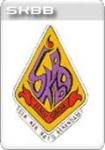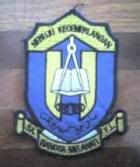 |
| The last vehicles in a convoy of the U.S. Army's 3rd Brigade, 1st Cavalry Division crosses the border from Iraq into Kuwait, Sunday, Dec. 18, 2011. |
[http://en.wikipedia.org/wiki/Withdrawal_of_U.S._troops_from_Iraq]
 The last convoy of US troops to leave Iraq has entered Kuwait, nearly nine years after the invasion that toppled Saddam Hussein.
The last convoy of US troops to leave Iraq has entered Kuwait, nearly nine years after the invasion that toppled Saddam Hussein.At the peak of the operation there were 170,000 US troops and more than 500 bases in Iraq. Nearly 4,500 US soldiers and tens of thousands of Iraqis have died since the US-led campaign began in 2003. The operation has cost Washington nearly $1 trillion (£643bn). US forces ended combat missions in Iraq in 2010 and had already handed over much of their security role.
"(It's) a good feeling... knowing this is going to be the last mission out of here," said Private First Class Martin Lamb, part of the final "tactical road march" out of Iraq.
"Part of history, you know - we're the last ones out."
As the last of the armored vehicles crossed the border, a gate was closed behind them and US and Kuwaiti soldiers gathered there to shake hands and pose for pictures. The only US military presence left in Iraq now is 157 soldiers responsible for training at the US embassy, as well as a small contingent of marines protecting the diplomatic mission.
 The low-key US exit was in stark contact to the blaze of aerial bombardment Washington unleashed against Saddam Hussein in 2003. Tribute
US President Barack Obama marked the end of the war earlier in the week, meeting Iraqi Prime Minister Nouri al-Maliki. He announced in October that all US troops would leave Iraq
by the end of 2011, a date previously agreed by former President George W
Bush in 2008.
The low-key US exit was in stark contact to the blaze of aerial bombardment Washington unleashed against Saddam Hussein in 2003. Tribute
US President Barack Obama marked the end of the war earlier in the week, meeting Iraqi Prime Minister Nouri al-Maliki. He announced in October that all US troops would leave Iraq
by the end of 2011, a date previously agreed by former President George W
Bush in 2008.In a recent speech at Fort Bragg in North Carolina, President Obama paid tribute to the soldiers who had served in Iraq. He acknowledged that the war had been controversial, but told returning troops they were leaving behind "a sovereign, stable and self-reliant Iraq".
However, correspondents say there are concerns in Washington that Iraq lacks robust political structures or an ability to defend its borders. There are also fears that Iraq could be plunged back into sectarian bloodletting, or be unduly influenced by Iran. Washington had wanted to keep a small training and counter-terrorism presence in Iraq, but US officials were unable to strike a deal with Baghdad on legal issues including immunity for troops.
[http://www.bbc.co.uk/news/world-middle-east-16234723]
[http://www.komonews.com/news/national/Images-The-last-US-troops-to-leave-Iraq-135830998.html]



















0 comments:
Post a Comment